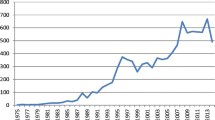Abstract
Within the mathematics education literature, the term ‘constructivism’ has been subject to a diversity of interpretations, many of which are trivializations of original theoretical work. We suggest that trivialized versions of constructivism continue to be promulgated due, in large part,to misunderstandings of some of the vocabulary adopted by its advocates. This situation has been the source of considerable frustration in our ongoing efforts to communicate the insights and implications of radical and social constructivist theories to preservice and practicing teachers. We discuss some of the specifics of these frustrations along with strategies intended to flag and circumvent them in our work with teachers. The writing is structured around a set of recursively elaborated interpretations of a classroom episode. Developed around varied understandings of the terms ‘structure’ and ‘construct’, these interpretations are intended to show how we have worked with teachers to foster a deep appreciation of how learning might be reframed as dependent on, rather than determined by, teaching.
Similar content being viewed by others
REFERENCES
Allen, B.S.: 1992, 'Constructive criticisms', in T.M. Duffy and D.H. Johanssen (eds.), Constructivism and the Technology of Instruction: A Conversation, Lawrence Erlbaum, Hillsdale, NJ, pp. 183–204.
Arends, R.I.: 2001, Learning to Teach, 5th ed., McGraw Hill College Division, Columbus, OH.
Borich, G.D.: 1999, Effective Teaching Methods, 3rd ed., Prentice Hall, Upper Saddle River, NJ.
Brockman, J. (ed.): 1996, The Third Culture: Beyond the Scientific Revolution, Touchstone, New York.
Butterworth, B.: 1999, What Counts: How Every Brain is Hardwired for Math, The Free Press, New York.
Capra, F.: 1996, The Web of Life: A New Scientific Understanding of Living Systems, Anchor Books, New York.
Cobb, P. and Bauersfeld, H. (eds.): 1995, The Emergence of Mathematical Meaning: Interaction in Classroom Cultures, Lawrence Erlbaum, Hillsdale, NJ.
Cobb, P., Yackel, E. and Wood, T.: 1992, 'A constructivist alternative to the representational view of mind in mathematics education', Journal for Research in Mathematics Education 23(1), 2–33.
Davis, B.: 1996, Teaching Mathematics: Toward a Sound Alternative, Garland, New York.
Davis, B., Sumara, D.J. and Luce-Kapler, R.: 2000, Engaging Minds: Learning and Teaching in a Complex world, Lawrence Erlbaum, Mahwah, NJ.
Dehaene, S.: 1997, The Number Sense: How the Mind Creates Mathematics, Oxford University Press, New York.
Freud, S.: 1937, 'Analysis terminable and interminable', in J. Strachey (ed.), The Standard Edition of the Complete Works of Sigmund Freud, volume 23, The Hogart Press and the Institute of Psychoanalysis, London, pp. 211–253.
Gadamer, H.-G.: 1990, Truth and Method, 2nd revised ed., translated by J. Weinsheimer and D.G. Marshall, Crossroad, New York.
Krummheuer, G.: 1995, 'The ethnography of argumentation', in P. Cobb and H. Bauersfeld (ed.), The Emergence of Mathematical Meaning: Interaction in Classroom Cultures, Lawrence Erlbaum, Hillsdale, NJ, pp. 229–270.
Maturana, H. and Varela, F.: 1987, The Tree of Knowledge: The Biological Roots of Human Understanding, Shambhala, Boston.
Nørretranders, T.: 1998, The User Illusion: Cutting Consciousness Down to Size, Translated by J. Sydenham, Viking, New York.
Pirie, S.E.B. and Kieren, T.E.: 1994, 'Growth in mathematical understanding: how can we characterise it and how can we represent it?', Educational Studies in Mathematics 26(2/3), 165–190.
Sierpinska, A.: 1997, 'Formats of interaction and model readers', For the Learning of Mathematics 27(2), 2–12.
Steffe, L.P. and Kieren, T.E.: 1996, 'Radical constructivism and mathematics education', Journal for Research in Mathematics Education 25(6), 711–733.
Towers, J.: 1998, 'Telling tales', Journal of Curriculum Theorizing 14(3), 29–35.
Varela, F.I.: 1999, Ethical Know-How: Action,Wisdom, and Cognition, Stanford University Press, Stanford, CA.
Von Glasersfeld, E.: 1995, Radical Constructivism: A Way of Knowing and Doing, Falmer, London.
Author information
Authors and Affiliations
Rights and permissions
About this article
Cite this article
Towers, J., Davis, B. Structuring Occasions. Educational Studies in Mathematics 49, 313–340 (2002). https://doi.org/10.1023/A:1020245320040
Published:
Issue Date:
DOI: https://doi.org/10.1023/A:1020245320040




